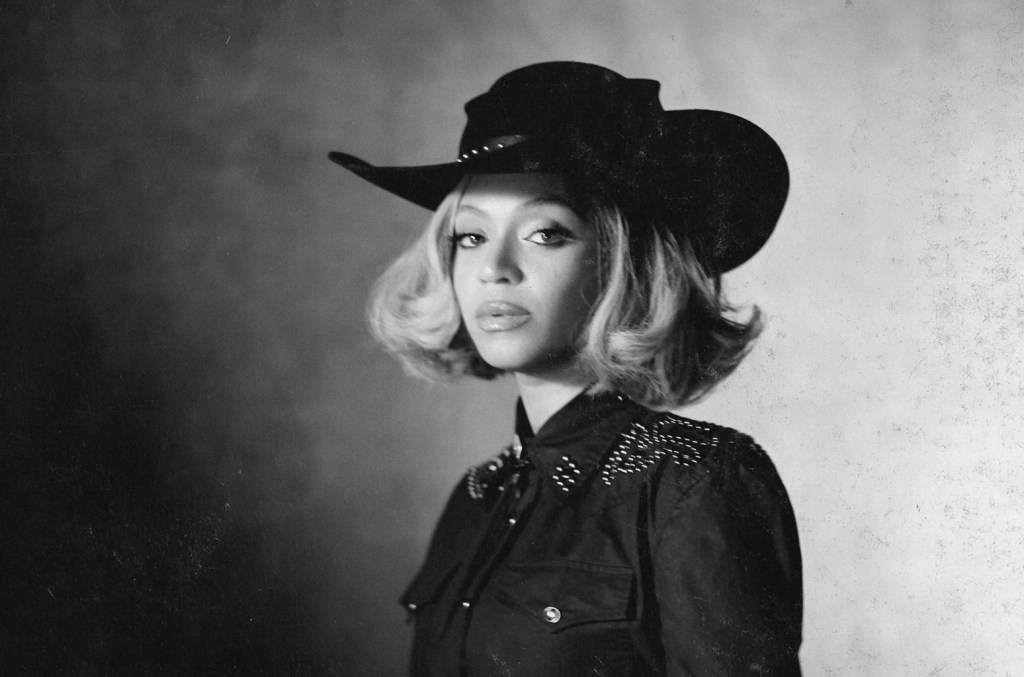This week, Beyoncé became the first Black woman to top Billboard’s Country Songs chart with “Texas Hold ‘Em.” But many of the credited songwriters and producers come from a surprising place – not Texas or Nashville, but Canada.
“Texas Hold ‘Em” is co-written by three Canadians: Nathan Ferraro (who also co-produced it), Elizabeth Boland (who has released music for the label Arts & Crafts as Lowell) and Megan Bülow (who makes music as bülow). The three of them are all credited on the song, with Ferraro also co-producing the song with Killah B and Beyoncé.
“I love Beyoncé and I love the record,” Ferraro tells Billboard Canada, “She’s created such an amazing cultural moment.”
Another Canadian, Dave Hamelin (formerly of The Stills), is credited on Beyoncé’s other new song, “16 Carriages,” listed as a producer and engineer.
To be clear, Beyoncé’s moment is not about any of these Canadian musicians. Many have rightfully pointed to the contributions of Rhiannon Giddens, a musician who’s been showing the world that the banjo was originally a Black instrument (which fits right in with Beyoncé’s Renaissance mission of reclaiming Black genres, first house and now country). Prominent Black roots musician, Robert Randolph, is also credited as a steel guitar player.
But it is also a big credit for a number of Canadian musicians who have been working behind the scenes of the music industry in bigger and bigger ways.
Ferraro was in an alt-rock band called The Midway State that had some success in Canada in the late 2000s. A signing to Interscope as a teenager brought him to Los Angeles, where he splits time with Toronto (it also brought a collaboration with a then up-and-coming Lady Gaga).
After writing for and with mostly Canadian artists, including Carly Rae Jepsen and Jessie Reyez, he had a modest international hit with bülow in “Not A Love Song,” which exemplified their collaboration as songwriters. He also wrote with Lowell (signed to Canadian label Arts & Crafts) for her project. They all formed a songwriting team that picked up steam in 2022, collaborating on the Charli XCX song “Yuck.”
“[The collaboration] works well for us,” Ferraro tells Billboard Canada. “We’re such good friends and we know each other’s strengths and weaknesses. I think we all have a lot of mutual respect, so we have a lot of confidence together and that allows us to take risks.”
He estimates they’ve written about 100 songs together, with about 20 of them seeing the light of day. Personally, he’s written about 1500, he says. He’s been recognized in Canada, with seven SOCAN awards for public performance of songwriting, but he’s also established himself as part of a “vibrant” community and industry of songwriters, studio musicians, producers and A&R people in Los Angeles.
“I first started coming here, sleeping on couches wherever I could, working with different collaborators and friends,” he says. “I did that for years. And at the end of the pandemic, I started spending even more time here and got a manager down here. And now I’m spending about six months a year here.”
Ferraro is inspired by prolific songwriters who’ve both written for other artists and recorded under their own names – Carole King and Diane Warren, especially. But he describes his collaborative songwriting process as one based on friendship and spirituality – not necessarily religious, but one with room for an ineffable type of expression that drives in-the-room creation.
“When I read a book by Rick Rubin or John Lennon, that often comes up. And I don’t think it’s by chance,” he says. “For any artist there’s a vision and a belief in something that doesn’t yet exist. I think it was Quincy Jones who said ‘always leave some space for God in the room,’ and it’d be silly of me to negate that. There’s a humility and a presence and an openness, and I think that’s important.”
Many of his biggest credits have been for female artists, from Lady Gaga to Charli XCX, something he attributes to growing up with five younger sisters. None of those credits have been as big as “Texas Hold ‘Em,” though, which could become a breakthrough credit for Ferraro, Lowell and bülow.
“Honestly, since I was 14, I had the vision that I would write songs that could have a major impact,” he says. “And it’s pretty delusional because it’s just so, so far away. I grew up in Collingwood, Ontario. But you just put one foot in front of the other and write lots and lots of songs and don’t give up. And that’s led me here.”
